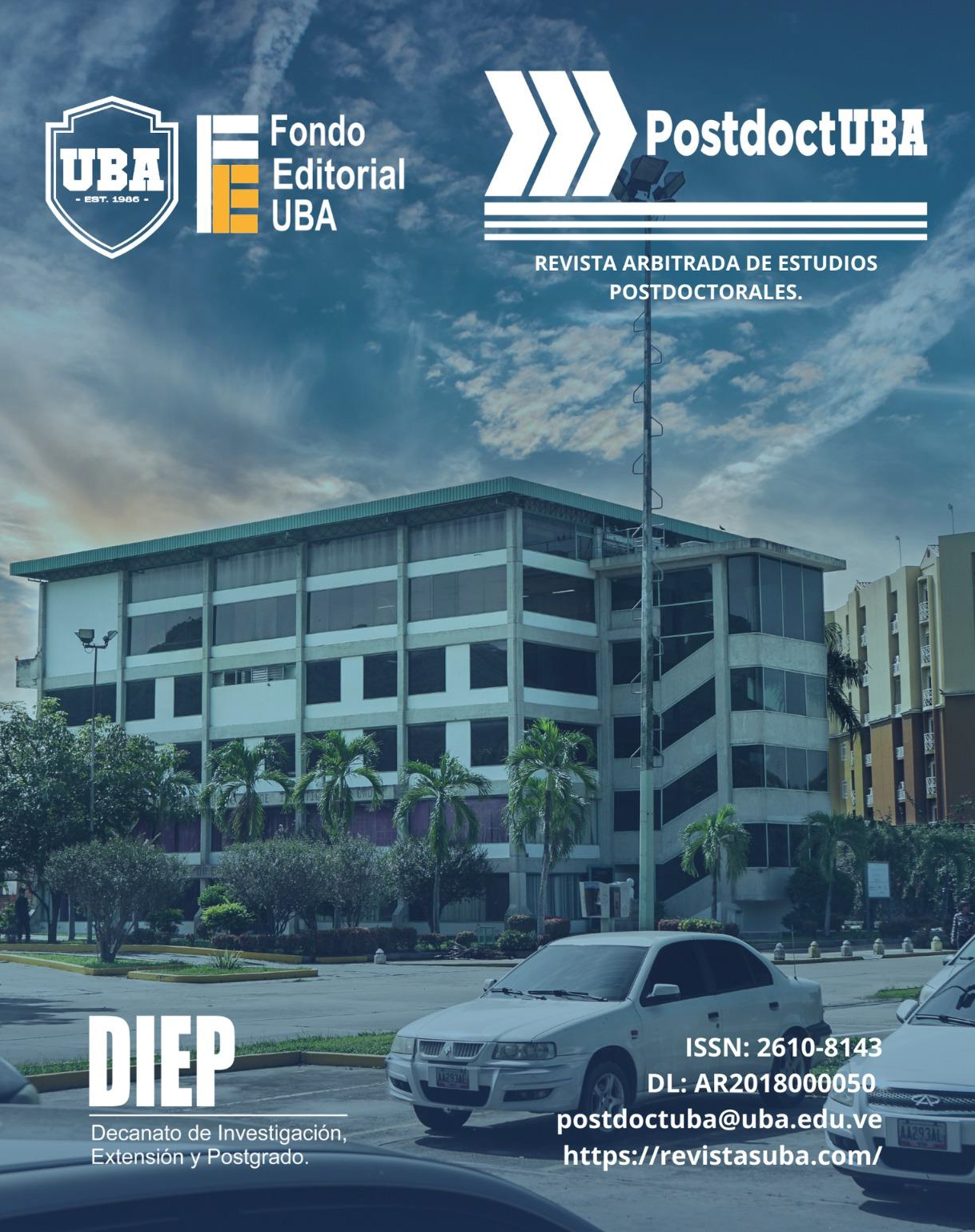NEURODIDÁCTICA DESDE EL PARADIGMA ECOSISTÉMICO EN LA BÚSQUEDA DE UN APRENDIZAJE TRANSFORMADOR Neurodidactics from the ecosystemic paradigm in the search for transformative learning
Contenido principal del artículo
Resumen
El artículo explora la Neurodidáctica desde el paradigma ecosistémico, proponiendo un enfoque innovador para el aprendizaje transformador. A través de una investigación documental y analítica, se examinan los principios fundamentales y su aplicación en el ámbito educativo. La metodología incluye un método cualitativo, centrado en la revisión bibliográfica, análisis de contenido, un estudio comparativo de enfoques pedagógicos y la síntesis de resultados en un marco conceptual. Es una investigación descriptiva y exploratoria que busca detallar y caracterizar las interrelaciones entre estos paradigmas. Se argumenta que la integración de estos enfoques no solo mejora la comprensión cognitiva, sino que también promueve el desarrollo integral del estudiante, considerando sus dimensiones emocionales, sociales y ambientales. Este articulo busca generar un entorno de aprendizaje más holístico y adaptado a las necesidades actuales, fomentando habilidades críticas y creativas que preparen a los estudiantes para enfrentar los desafíos del mundo contemporáneo.
Neurodidactics from the ecosystemic paradigm in the search for transformative learning
Abstract
The article explores Neurodidactics from the ecosystemic paradigm, proposing an innovative approach to transformative learning. Through documentary and analytical research, the fundamental principles and their application in the educational field are examined. The methodology includes a qualitative method, focused on literature review, content analysis, a comparative study of pedagogical approaches, and the synthesis of results in a conceptual framework. It is a descriptive and exploratory research that seeks to detail and characterize the interrelationships between these paradigms. It is argued that the integration of these approaches not only improves cognitive understanding but also promotes the comprehensive development of students, considering their emotional, social, and environmental dimensions. This article seeks to generate a more holistic learning environment adapted to current needs, fostering critical and creative skills that prepare students to face the challenges of the contemporary world.
Neurodidactique du paradigme écosystémique à la recherche d'un apprentissage transformateur
Résumé
Cet article explore la neurodidactique à partir du paradigme écosystémique, proposant une approche innovante de l'apprentissage transformateur. À travers des recherches documentaires et analytiques, les principes fondamentaux et leur application en éducation sont examinés. La méthodologie comprend une approche qualitative, axée sur une revue de la littérature, une analyse de contenu, une étude comparative des approches pédagogiques et la synthèse des résultats dans un cadre conceptuel. Cette recherche descriptive et exploratoire vise à détailler et à caractériser les interrelations entre ces paradigmes. Il est avancé que l'intégration de ces approches améliore non seulement la compréhension cognitive, mais favorise également le développement holistique des élèves, prenant en compte leurs dimensions émotionnelles, sociales et environnementales. Cet article vise à créer un environnement d'apprentissage plus holistique, adapté aux besoins actuels, favorisant les compétences critiques et créatives qui préparent les élèves à relever les défis du monde contemporain.
Detalles del artículo
Citas
Capra, F. (1996). The Web of Life: A New Scientific Understanding of Living Systems. New York: Anchor Books.
Cranton, P. (2006). Understanding and Promoting Transformative Learning: A Guide for Educators of Adults. Jossey-Bass.
Creswell, J. (2013). Research Design: Qualitative, Quantitative, and Mixed Methods Approaches. Sage Publications.
Damasio, A. (1994). Descartes' Error: Emotion, Reason, and the Human Brain. New York: Putnam.
Doidge, N. (2007). El cerebro que se cambia a sí mismo: Historias de triunfo personal de las fronteras de la ciencia del cerebro. Vikingo. https://psycnet.apa.org/record/2006-23192-000 el 15/10/2023
Dron, J. (2020). Learning in the Age of Digital Reason. Athabasca University Press.
Dweck, C. S. (2020). Mindset: The New Psychology of Success. Ballantine Books.
Freire, P. (2009). Pedagogy of the Oppressed. Misión Muse 2009-06-14. https://muse.jhu.edu/pub/3/article/266914/summary
Gardner, H. (2001). Multiple Intelligences: The Theory in Practice. Basic Books. Sexta reimpresión (FCE, Colombia), 2001
Goleman, D. (2019). Emotional Intelligence: Why It Can Matter More Than IQ. Bantam Books.
Hattie, J. (2009). Visible Learning: A Synthesis of Over 800 Meta-Analyses Relating to Achievement. Routledge.
Immordino , Yang, M. H. (2019). Emotions, Learning, and the Brain: Exploring the Educational Implications of Affective Neuroscience. W.W. Norton & Company.
Johnson, D.W., & Johnson, R.T. (2009). An Educational Psychology Success Story: Social Interdependence Theory and Cooperative Learning. Educational Psychologist.
Meadows, D., Randers, J., & Meadows, L. (2004). Limits to Growth: The 30-Year Update. Chelsea Green Publishing Company.
Mezirow, J. (1991). Transformative Dimensions of Adult Learning. Jossey-Bass.
Morin, E. (2008). On Complexity. Hampton Press.
Morrison, K. (2008). Educational Philosophy and the Challenge of Sustainability. London: Routledge.
Ostrom, E. (1990). Governing the Commons: The Evolution of Institutions for Collective Action. Cambridge University Press.
Saldaña, J. (2016). The Coding Manual for Qualitative Researchers. Sage Publications.
Seligman, M. (2021). The Hope Circuit: A Psychologist's Journey from Helplessness to Optimism. Hachette Books.
Sousa, D. (2016). How the Brain Learns. Corwin
Sterling, S. (2001). Sustainable Education: Re-Visioning Learning and Change. Totnes: Green Books.
Taylor, E. (2007). Transformative Learning Theory. In Handbook of Adult and Continuing Education (pp. 55-72). Sage Publications.
Vygotsky, L. (2020). Mind in Society: The Development of Higher Psychological Processes. Harvard University Press.
